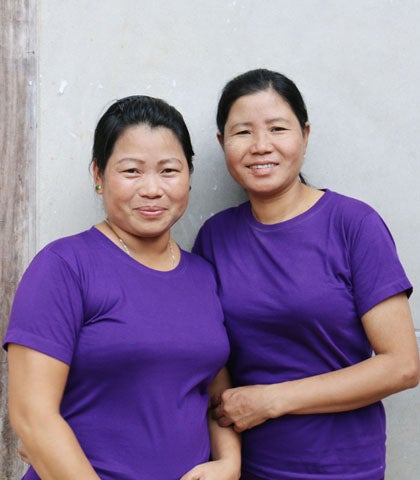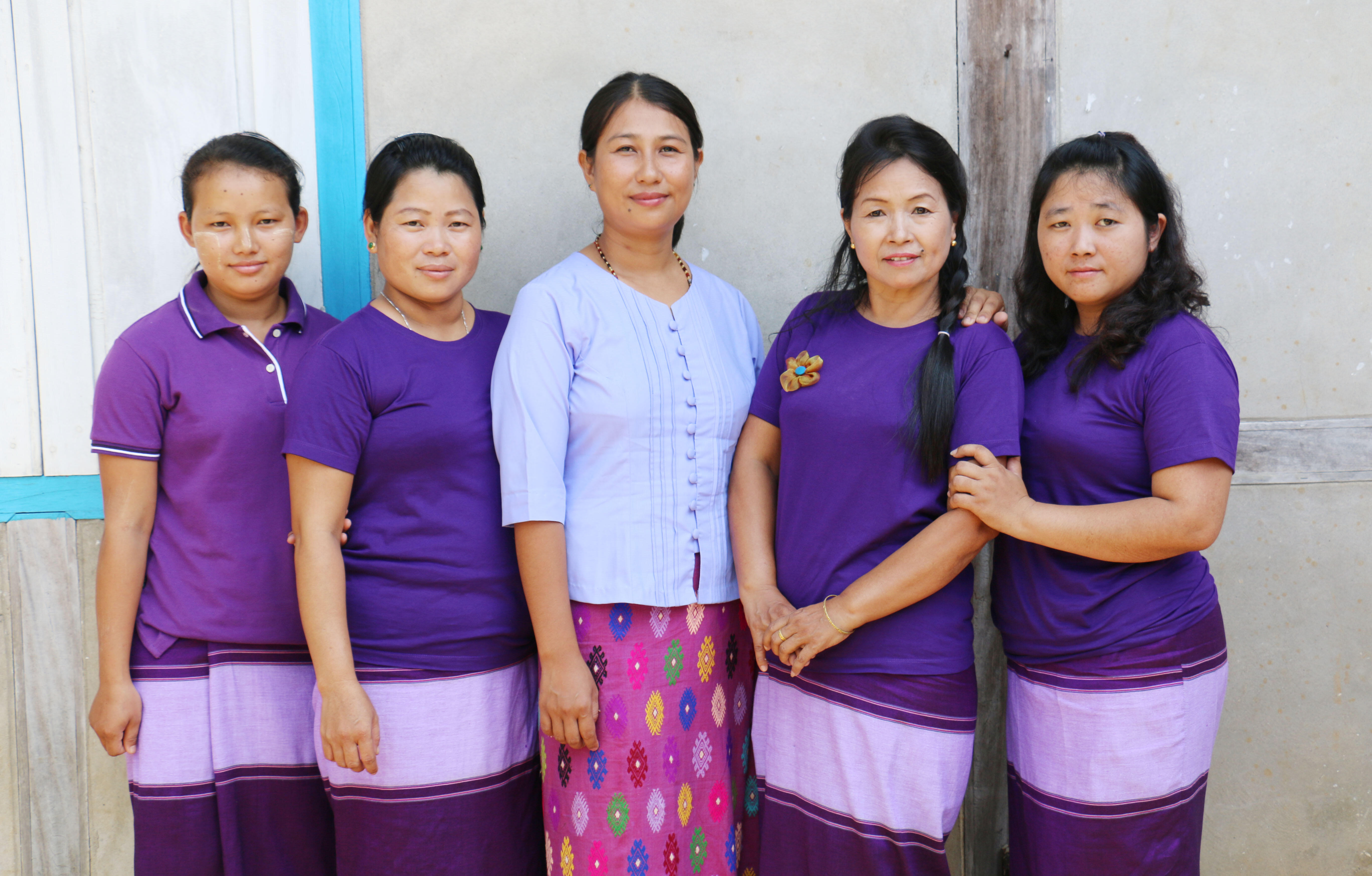Gender-based violence is a silent emergency in Myanmar. There is groping on buses, harassment, cyber exploitation, date rape, trafficking and more. And there is domestic violence. Marital rape is still not a crime in Myanmar, and this testifies to the high level of acceptance in the country of violence against women. The problem needs to be addressed on all fronts. Not least in areas where there is armed conflict and where families struggle under the additional stress of having lost their homes and livelihoods.
To help women and girls cope with life in camps for internally displaced persons (IDPs), UNFPA has established Women and Girls Centres in conflict-affected areas in Myanmar. In the centres, women and girls who have been abused receive help to get to hospital for medical assistance. Emergency treatment is particularly important in rape cases, where treatment started within 72-hours can prevent both pregnancy and infection, including HIV. The centres also offer counselling and psychosocial support to help deal with the trauma.
In the face of a weak legal system and the stigma of community disapproval, few women choose to report assaults. But those who do are supported by the Women and Girls Centres when they go to the police station and if and when their case is brought to trial.
“It’s important not to be divisive”
At the Women and Girls Centre in Waing Maw in Kachin State, prevention officers, response officers, and caseworkers work together with volunteers and management in IDP camps. But their work doesn’t end when they go home for the day. Caseworker Daw Lu Bu lives in the nearby town of Myitkyina. She has realized that she now has the skills to address gender-based violence in her own community. And although it means bringing her work home, she wants to do it.
“In my neighbourhood too there is domestic violence. I always try to help. Only last month, a woman approached me for help. Her husband was blaming her for giving birth only to daughters, and he was being very aggressive. I sat down with both of them and discussed different aspects of fertility, and also explained that the sex of a baby is determined by the sperm from the man. I managed to find a way to say this without blaming or further upsetting the man. In these situations it’s important not to be divisive, but to stress that men and women have a shared responsibility for their children. So far, the man is calmer. I hope it lasts.”
The knowledge that Lu Bu has acquired at the Women and Girls Centre means that she knows things her neighbours don’t. It also means that she can intervene confidently in emergencies.

“One evening a corner shop on my street was tended by a high school girl. A young man buying cigarettes demanded more cigarettes than he had paid for, and when she said no, he shouted at her and grabbed and pulled at her breasts. She was very upset and crying when her parents brought her to me. In the end, I helped the girl and her parents bring the man to justice, and he is now being prosecuted.”
“We have the right to live in peace”
The Women and Girls Centres respond to gender-based violence in a way that is safe and that focuses on the needs of women. But preventing violence is as important as responding to it. Khaung Nan works as a prevention officer at the Waing Maw Women and Girls Centre. She is confident that slowly, slowly, their message is getting through.
“The word is spreading not only in the camps, but in the host communities too. We’re now invited to give GBV presentations in the villages, and when I arrive, I realize that most people already know that domestic violence is a crime. But this is just the start. First we focused our efforts on women and girls in the camps. Now we are expanding our work to the villages and to boys and men.”
“We should not have to live in fear of violence, just because we are women. We have the right to live in peace in our homes and in our country. The Women and Girls Centre gives us the power to stop the violence.”
UNFPA’s gender-based violence programme in Kachin includes eight Women and Girls centres and both male and female volunteers. Together they cover 38 camps for internally displaced people and their host communities in both government controlled areas and non-government controlled areas. The programme is supported under the Women and Girls First initiative, which is funded by Australia, Canada, Finland, Italy, Sweden and the UK.


